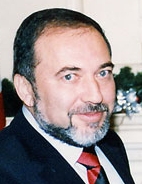A spokesman of the Nigerian national police on Friday said that “life is back to normal” after Muhammed Yusuf, the leader of the so-called “Nigerian Taliban”, was captured and killed late Thursday night. Yusuf’s Boko Haram Islamic sect had clashed with security officials in northern Nigeria since Sunday, with violence claiming close to 200 lives and displacing many more people. Northern Nigeria is under partial Sharia law, in accordance with its large Muslim population, but Boko Haram (which means “Western education is prohibited”) members protested that the rules were not strict enough. Though there were initially some conflicting reports as to how Yusuf died, leading some to believe the story might be a propaganda effort by a strained police force, state television has since shown journalists a video of officers with the body.
 Despite the appearance of thawing relations between the United States and Syria, President Barack Obama has decided to extend trade sanctions against the Arab nation. In a White House press conference yesterday, Obama said that although “positive developments” have arisen over the past year between Damascus and Washington, “certain persons” continue to contribute to political and economic instability in Lebanon and pose an “unusual and extraordinary threat” to the United States. Obama’s decision will extend sanctions under the 2003 Syria Accountability and Lebanese Sovereignty Restoration Act—signed under former president George W. Bush when Syria was considered to be a member of the “Axis of Evil.” Since assuming office, Obama has moved to improve relations with Syria by reopening the American embassy in Damascus and approving a series of high-level talks between Syrian and U.S. officials. Earlier this week, Syrian president Bashar al-Assad met with U.S. defense secretary Robert Gates. And while sanctions have been renewed, the Obama administration has also added exceptions to the trade restrictions, allowing the trade of spare aircraft parts, information-technology systems, and telecommunications equipment “deemed important to the welfare of the Syrian people.”
Despite the appearance of thawing relations between the United States and Syria, President Barack Obama has decided to extend trade sanctions against the Arab nation. In a White House press conference yesterday, Obama said that although “positive developments” have arisen over the past year between Damascus and Washington, “certain persons” continue to contribute to political and economic instability in Lebanon and pose an “unusual and extraordinary threat” to the United States. Obama’s decision will extend sanctions under the 2003 Syria Accountability and Lebanese Sovereignty Restoration Act—signed under former president George W. Bush when Syria was considered to be a member of the “Axis of Evil.” Since assuming office, Obama has moved to improve relations with Syria by reopening the American embassy in Damascus and approving a series of high-level talks between Syrian and U.S. officials. Earlier this week, Syrian president Bashar al-Assad met with U.S. defense secretary Robert Gates. And while sanctions have been renewed, the Obama administration has also added exceptions to the trade restrictions, allowing the trade of spare aircraft parts, information-technology systems, and telecommunications equipment “deemed important to the welfare of the Syrian people.”
In a diplomatic effort to reassert its influence in a region where, “the United States has been working actively for several years,” Russian president Dimitri Medvedev met with the leaders of Afghanistan, Pakistan, and Tajikistan in the Tajik capital of Dushanbe on Thursday. Talks focused on security issues that the four nations share, specifically with regards to Islamic militancy and drug trafficking. Tajikistan is particularly worried that militant activity will spill over its unprotected border with Afghanistan. In a news conference following the summit, Medvedev declared that the four countries, “want regional and international security to be more comprehensible, more transparent, more controlled, based on international law.” Russia also sought to promote its business interests in the three nations, including several detailed development projects. Many see these efforts as in line with the Obama administration’s long-term policy for the region and a way for Russia and the U.S. to signal cooperation going forward.
 Israeli foreign minister Avigdor Lieberman has accused Venezuelan president Hugo Chavez of “collaborating” with “radical branches” of Islam by allowing the establishment of militant Islamist cells in Venezuela. Lieberman’s accusation came on the final day of his ten-day visit to South America when he was asked by a reporter to provide evidence for Israeli claims that Shiite Lebanese militant group Hezbollah had opened cells in Venezuela. Lieberman added that Israel had “no reason” to communicate with Chavez who he claims maintains close ties with Iran, Palestinian militant group Hamas, and Hezbollah. The Israeli foreign ministry has said that Lieberman’s trip is aimed at countering growing Iranian influence in the region and preventing “new attacks against Israelis.” In 1992, 29 people were killed in a bomb attack on the Israeli embassy in the Argentine capital of Buenos Aires, and two years later, an additional 85 were killed during an attack on a Jewish community center in the same city. During his trip, Lieberman visited Peru, Brazil, Colombia, and Argentina.
Israeli foreign minister Avigdor Lieberman has accused Venezuelan president Hugo Chavez of “collaborating” with “radical branches” of Islam by allowing the establishment of militant Islamist cells in Venezuela. Lieberman’s accusation came on the final day of his ten-day visit to South America when he was asked by a reporter to provide evidence for Israeli claims that Shiite Lebanese militant group Hezbollah had opened cells in Venezuela. Lieberman added that Israel had “no reason” to communicate with Chavez who he claims maintains close ties with Iran, Palestinian militant group Hamas, and Hezbollah. The Israeli foreign ministry has said that Lieberman’s trip is aimed at countering growing Iranian influence in the region and preventing “new attacks against Israelis.” In 1992, 29 people were killed in a bomb attack on the Israeli embassy in the Argentine capital of Buenos Aires, and two years later, an additional 85 were killed during an attack on a Jewish community center in the same city. During his trip, Lieberman visited Peru, Brazil, Colombia, and Argentina.